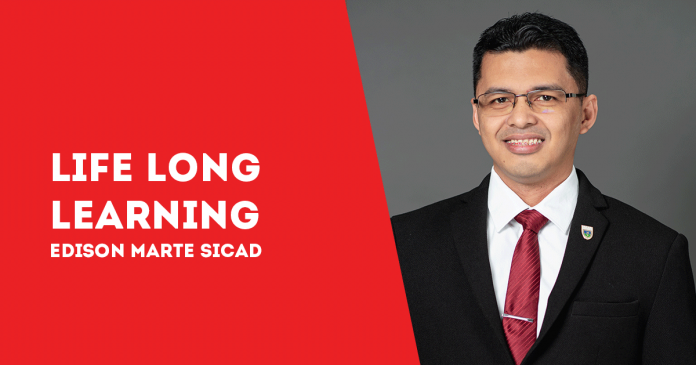
BY EDISON MARTE SICAD
“The important thing is not to stop questioning. Curiosity has its own reason for existence. One cannot help but be in awe when he contemplates the mysteries of eternity, of life, of the marvelous structure of reality. It is enough if one tries merely to comprehend a little of this mystery each day.” — Albert Einstein
WHAT Einstein considered as “the marvelous structure of reality” would then include parts of that structure that are yet to happen in the future. And the future is the playing field of the visionaries: those who believe in the impossible; those who question the status quo; those who see things not only by sight, but by faith.
Moreover, the questioning could also be the impetus that will uncover the still hidden truths.
To clarify, questioning here does not only mean finding fault (although such an act is highly valuable for safety purposes) nor fixing what is broken; it could also serve as a challenge:
“Do you want to sell sugar water for the rest of your life or come with me and change the world?” — Steve Jobs convincing John Sculley, the President of Pepsi, to work for Apple.
This Silicon lore was not meant to cheapen working for Pepsi or belittling jobs that do not really change the world, so to speak. This question now becomes a euphemism for questioning: why you wake up in the morning.
Somehow, the question is inspiring. It rings a bell, like awakening our potential that we thought we didn’t have; an opportunity has been realized.
It could also be a warning — for we might be asking the wrong questions or avoiding responsibilities — which is difficult to detect from its inception.
But why ask in the first place?
Because this is where we can have a hands-on approach in writing our story; making sure that no one else is writing it for us. In short, we avoid becoming a prey to the narratives of others.
The Other Narratives
Since the advent of daily news, the political narrative has been imbedded in our system. We had been politicized. Or we can say that Man—being a member of society—is blessed or cursed by politics. This is difficult to unsee since institutions and laws govern our everyday lives. But the question is: “Is it possible for an individual to see things in a different way?”
I had a classmate in college whose narrative in life was his religion and the mystical benefit—a sense of detachment— that he felt and wanted the people around him to enjoy as well. He saw things with God’s providence. He was then immune from all the worries of the world.
I also had a student who was brought up by his family’s tradition. Before deciding, he always considered how will his father and grandparents think of him.
I am sharing these stories to emphasize the importance of “narrative-making” that provides a default meaning to a person’s life: there is already an existing metanarrative where the person belongs. This somehow lessens confusion, as a pathway or guidepost has already been made: my classmate was happy that God was with him, which gave him a positive disposition — an eternal perspective — which took away the heavy toll of the mundane and struggles of daily life. He lived by the spirit and his human interactions was almost an apostolic mission.
On the other hand, my student eventually became a businessman with his family and connections providing him the necessary resources. In hindsight, he was grateful, and admitted that his father was correct all along.
This all looks good. A panacea even. But we all know that there are those who do not want to belong to a mold. A rebel. A person full of questions — or cynicisms. A product of his own thinking. A maverick.
In this instance, almost everyone becomes an anti-version of him. He does not obey because he thinks that rules only limit individual creativity or curtail a person’s identity.
IN CONCLUSION, the awareness of these narratives is a challenge to the reader to be unique and at the same time to have a social advocacy.
And so, your narrative is your own story as you live. Imagine that there is an all-knowing author narrating your life. It could be you. The excitement here is that you can reflect and see things as a source of inspiration and object of study. That your narrative is the prism that will color your life. The question now is, “Do you have the willpower to write the story that you really dreamed of?”/PN



